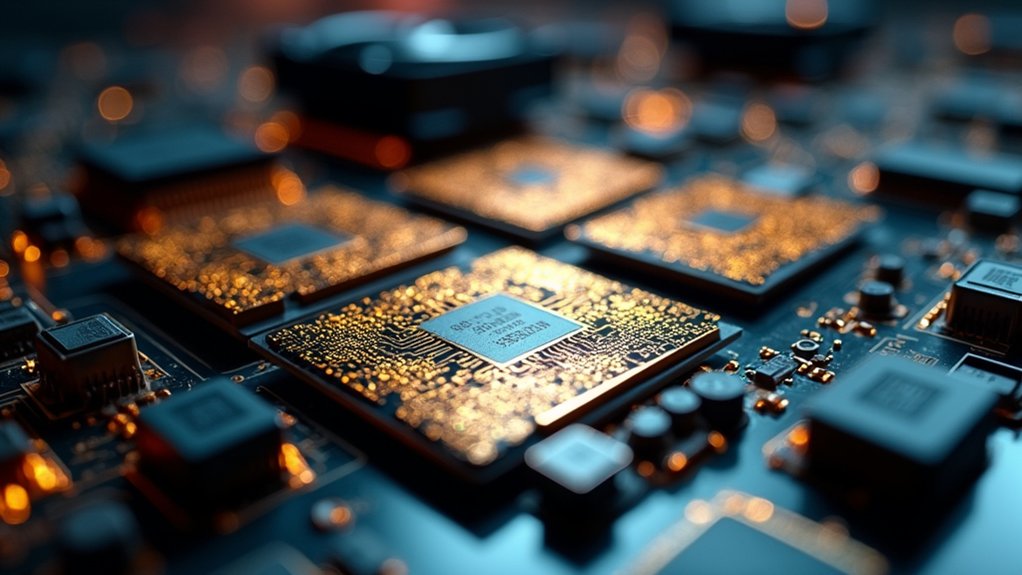Block is preparing to release its highly anticipated Bitcoin mining chip next week through its Proto Mining partnership, marking a bold attempt to democratize an industry that has increasingly resembled a hardware oligopoly dominated by established ASIC manufacturers like Bitmain. The company’s venture into 3-nanometer chip technology represents cutting-edge semiconductor manufacturing—a technological leap that positions Block among the most advanced manufacturing nodes available today.
Block’s 3-nanometer Bitcoin mining chip launch challenges the established ASIC hardware oligopoly through cutting-edge semiconductor technology and strategic democratization efforts.
The timing couldn’t be more strategic, given Bitcoin’s perpetual struggle with environmental criticism and centralization concerns. Block’s chips prioritize energy efficiency, delivering lower energy consumption per terahash compared to existing miners while potentially reducing the carbon footprint that has made Bitcoin mining a favorite target of climate activists. This energy-conscious approach may prove particularly attractive to miners in regions where electricity costs have historically made operations prohibitively expensive.
Beyond environmental considerations, Block’s initiative directly addresses Bitcoin network security through enhanced decentralization. By distributing mining power more broadly and enabling small-scale participants to compete with large-scale operators, the company aims to increase network resilience against potential attacks—a noble goal in an ecosystem where consolidation has become increasingly problematic. The enhanced mining efficiency could help reduce Bitcoin’s current annual consumption of approximately 162 terawatt-hours while maintaining the robust security that makes proof of work such an effective consensus mechanism.
Jack Dorsey’s leadership vision extends far beyond hardware manufacturing, positioning Bitcoin as foundational internet protocol rather than mere “digital gold.” CFO Amrita Ahuja has emphasized the company’s commitment to building Bitcoin’s ecosystem utility, supporting broader infrastructure investments designed to embed Bitcoin in mainstream finance. Block’s Cash App already facilitates Bitcoin transactions for millions of users, creating a natural synergy with mining hardware development.
The competitive landscape presents formidable challenges, however. Established ASIC suppliers have significant market advantages, manufacturing scale, and distribution networks that won’t be easily displaced. Block’s domestic production strategy aims to diversify supply chains while reducing dependency on foreign manufacturers—a consideration that carries both economic and geopolitical implications.
The company expects this chip release to improve financial outlook by late 2025, driven by Bitcoin-related services and hardware innovation. Whether Block can successfully challenge entrenched competitors while maintaining profitability remains an open question, though the democratization potential certainly merits attention from anyone concerned about Bitcoin’s long-term decentralization.





